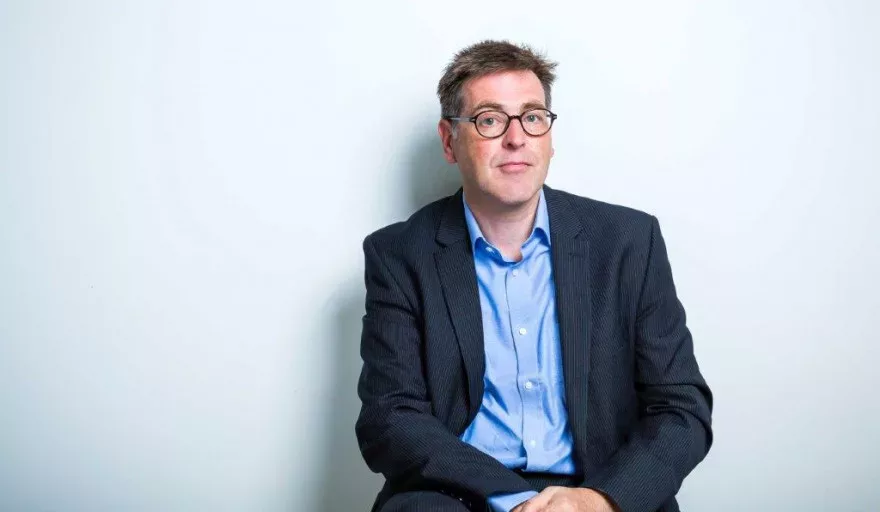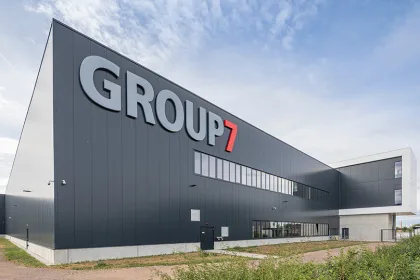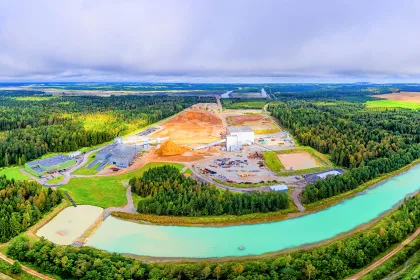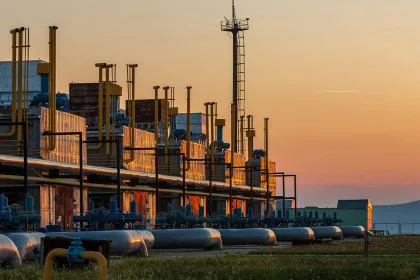Phil Skipper, Head of Business Development (IoT) at Vodafone Business, talks to us about the changes occurring to efficiency and revenue streams in the online space.
WHAT IS IOT?
A simple question at first glance, but one which carries an ever-changing answer depending on who you speak to and when.
For us it was Phil Skipper, Head of Business Development (IoT) at Vodafone Business, who answered this in our final meeting before we hot-footed on a metro to Barcelona Airport.
“For me, IoT is about connecting remote devices to drive two outcomes,” he says, sat across from us in a Vodafone-clad meeting room at the back of another enormous booth.
“One is to drive efficiency in the business process and the second is to generate new revenue streams, what we call the business case of cost avoidance and the business case of revenue generation.”
Skipper quickly refers to smart meters and internet in cars as examples of these two outcomes before the common denominator of MWC, 5G, enters the conversation.
“The interesting thing is what 5G then does,” he continues. “It takes this from a data centric service to a control centric service, which potentially presents a third business case, meaning the definition may evolve from two business cases to three in time.”
Vodafone, and Skipper, have witnessed first-hand the fluidity and evolution of IoT’s meaning over many years.
The latter’s personal experience outside of the telco industry has served him in good stead, a manufacturing background with the likes of Siemens helping appreciate customer needs from an outcome-based perspective.
“IoT very much started off as a technology sale, typically to a multinational with equal capabilities to companies like Vodafone,” Skipper recalls. “It was a peer-to-peer conversation.
“As the market has matured, we are seeing other companies come in who are more outcome based than technical, meaning they increasingly buy more of the value chain. This goes all the way down to, say, a small solar company that wants an IoT-connected security system that is housed in a box on a wall and connects to a mobile phone.”
There has also been a massive expansion in the breadth of IoT’s reach, with virtually all industries from agriculture to education impacted in some way by this heightened level of connectivity.
“The third element of evolution is what I touched on regarding peer-to-peer conversations,” Skipper adds.
“Rather than Vodafone connecting BMW to every single BMW car, we are connecting to much more of an ecosystem model where the end-to-end process is split into a number of subprocesses. These subprocesses have several different specialists within them that make up the ecosystem, which you then have to trust. IoT is essentially becoming democratised.”
Skipper joined Vodafone in 2013 with the goal of helping create an IoT leader, something that has undeniably been achieved.
The company covers around 400 networks across approximately 180 countries, a combination of its own networks, those of partners and roaming agreements with other parties. This scope has allowed Vodafone Business to see many of the aforementioned trends before other enterprises, meaning it can lead the market rather than follow it.
RALLYING CALL
MWC is the perfect forum for the firm to demonstrate this position.
Skipper describes the show as a “great way of getting a good, concise, concentrated look at the market in one go”, and Vodafone’s energetic, dynamic booth illustrates the best of what IoT has to offer.
“I have to mention the rally car,” he says. “Isidre Esteve is a disabled racing driver who has just participated in the Dakar Rally, a phenomenally tough race, and we’ve put a lot of tech inside the car and on him so he can be monitored while driving.”
Esteve, now 46, has no muscular control below his chest after sustaining a serious back injury while racing in 2007. A smart cushion beneath his seat and smart features on his race suit analyse his performance on the road, making it safer (and possible) for him to compete against the world’s best drivers.
The cushion is particularly clever, consisting of round supportive air cells with constantly changing pressure, controlled via an app. This creates a massage effect to prevent ulcers.
The helmet and suit also gather real-time data and connect to analytics hosted in the cloud, allowing Vodafone and Esteve’s team to monitor the driver’s heart rate, body temperature and hydration levels. This is particularly important in a race like Dakar where conditions are especially difficult and require maximum alertness.
“This project demonstrates what we can do in the healthcare space, which is one of the big IoT markets,” Skipper adds. “With chronic diseases escalating in countries around the world, IoT offers the opportunity to bridge the gap between clinical and domicile care, and that is a really interesting area too.
“For example, you can provide video services for customers that start to provide a patient with the same level of care in their home as you might expect in a hospital, which has huge societal as well as budgetary benefits.”
Another area of IoT showcased at Vodafone’s booth includes consumer applications covering automation and security, while products on display in the agriculture sphere include vineyard monitoring solutions.
“What we’ve tried to do is handpick some interesting examples and contrast this with some of the more technical services in terms of analytics, so you’ll find a real mix of outcome and technology to cover all customers coming into the stand,” continues Skipper.
“While lots of people get excited about the glossy things like autonomous driving, if you look below the surface there’s a range of applications that affect us all as we move into smart cities and a connected world.”
BOUNDLESS?
But how far will this connected world and IoT expand? And how far should it expand?
For Skipper, it is almost inevitable that IoT will immerse itself into everyday life and become the new normal, and in many ways this is already occurring.
“It will go as far as when you stop realising it is happening,” he tells us.
“It is sort of intrusive at the moment in that there’s got to be a device for this and for that, but over time it will just be the way things are done. By definition, the default position will be connected, and we will treat these services the same way we do with smartphones, almost for granted.
“IoT will stop being seen as a set of applications but rather simply part of the infrastructure we are all used to. It will become the normal way of delivery.”
In becoming normalised, Skipper refers to a balance that will need to be struck between enablement and ethics, citing studies conducted in the UK on the very subject.
Albeit a consideration companies like Vodafone Business will have to monitor closely, the Head of Business Development is confident that such a balance can and will be struck over time, and that IoT will continue to be a strong performer for the company.
Concluding just in time for our airport departure, he says: “I am optimistic about the way the world will turn out – it is already a massively overdamped system, so it goes at its own speed. I believe these applications will create tremendous value for everyone in the ecosystem. Yes, some governance is needed, but IoT will continue to expand.
“In terms of Vodafone, IoT has had a big impact on us as an organisation. It is a strong-performing business and will continue to be so. What you can achieve with IoT is almost beyond limit.”


































